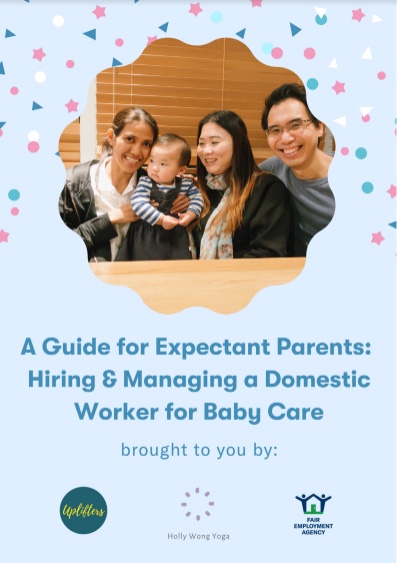How are you doing?
This is a common question, but many times it is simply a greeting, not a real question. I feel, however, that with the current Covid-19 situation, people now give this question a deeper meaning. There may be a shift in how we all communicate.
So really — how are you doing — I really want to know.
As human beings living through a pandemic, we are going through a lot of emotions. Wouldn’t you agree? We have never lived times like these before. None of us. There are many things we don’t know. What we know though is that this is something we will overcome together, by connecting and supporting each other as human beings should.
These are difficult times for all and your employer is likely stressed and tired as well. We all need to do our best to understand each other and realize there may be more work because of these exceptional circumstances. But it does not mean you should not say anything and endure all. Good communication skills will be key.
This is why I am writing today to provide some tips on how communication can help us connect and support each other.
I am Mônica Z. Hall, a Brazilian living mostly in Asia since 1999, a Corporate Trainer and Coach, a mother, a wife, a friend, a yoga and meditation practitioner, an employer of the same domestic worker for almost 7 years; and above all a human being just like all of us – with fears and dreams.
With FELIZ Consulting I work with a number of individuals and organisations to help them make the most of their communication skills to grow their team or themselves. As an active volunteer with different NGOs in Hong Kong, I am really excited and honoured to be involved with Uplifters this year.
In this article, I am here to share some communication skills tips that I hope will be practical to you.
The Uplifters Dare to Dream program uses DESC technique in its course. So, to begin, let’s look at it and expand from it with some examples.
DESC stands for Describe, Express, Specify and Consequences.
D for DESCRIBE
The first step is to Describe a situation we observe. Try to use facts as much as you can. Focus on just one recent behaviour you have witnessed. If you feel comfortable with saying “I” when you describe what you saw, this could help- e.g. “I saw that…” rather than “You did this…” (which can sound aggressive).
For example, you may choose to say:
- “I saw you seemed unhappy with my work earlier” instead of “You are yelling at me when I am trying to do the job”.
- “Due to the current situation, I have not had any Sunday off for the past 3 weeks” instead of “You did not allow me to have any Sunday off for the past 3 weeks”
- “I did not receive compensation for the two Sundays I worked this month” instead of “You did not pay me extra for the two Sundays I worked this month”
Describe it and pause after you said it. Using pauses and silences helps to get your audience digest what you just said and better respond.
E for EXPRESS
The next step is to Express how this behaviour impacts you, preferably using “I feel” sentences. It will help connect emotions with emotions, feelings with feelings, all the more if you communicate with people from different backgrounds, cultures or social-economical status. We all better connect with emotions and feelings (Emotional Intelligence studies prove it) This will also help you to avoid the more problematic and aggressive “you” statements,” You said this…”, “You did that…”, “It is your fault that…” which are not constructive ways of communicating but instead focus on blame.

Therefore, you might say things like: “Lately I felt tired;” “I am feeling stressed out about the pandemic”; “I am feeling concerned for my family in my home country.” Naming and sharing your feelings and emotions should help your employer connect to their own feelings and emotions. This connection will make it more likely for them to adapt their behaviour; which is what you want to get next.
S for SPECIFY
Specify what you would like them to do differently. This is tricky with an employer in any work environment. It might be even more difficult in an employer-domestic worker relationship as work and family are mixed into one environment. By having expressed your feelings and emotions first (in the Express part), you may have stirred up empathy. Yet, feeling empathy might help your employer change their behaviour.
C for CONSEQUENCES
Finally, share the Consequences their behaviour change will have on you. It’s natural that they’ll want to understand why you’re asking for a change to their behaviour or why you are mentioning something is wrong in the way they do things. It’s important you can explain how it will impact both you and them for the better.
Examples may be:
- “When I can’t rest on Sundays, I know I won’t be able to work well on the long term”
- “When I don’t get my day off, I feel very tired and may not do what you expect me to do well — I feel I lose patience with the kids”.
It is even better if you can say it positively:
- “If I can get my day off, I will feel more energised to come back”
- “If I can have some rest time I will be better rested to play more with the kids”.
Focusing on the positive language is to influence a change in behaviour.
DESC is a great technique to acknowledge where you are as a person and also to provoke positive behaviour change.
I hope you are using it and that the additional examples above can be of help.
There is a lot more we could talk about, discuss, practice in terms of how to best communicate not only in a domestic work environment but in any job. For now, let’s save the new sharing for another article or a video!
Mainly I hope you got some new useful and practical tips here!
Please stay well, healthy and positive! I hope to see you all soon on a short video, on Facebook or in person. Stay in touch and please connect on Facebook, following FELIZ Consulting page on Facebook, or drop me a line!
Keep a Happy Mind!
Warmest wishes, Mônica


